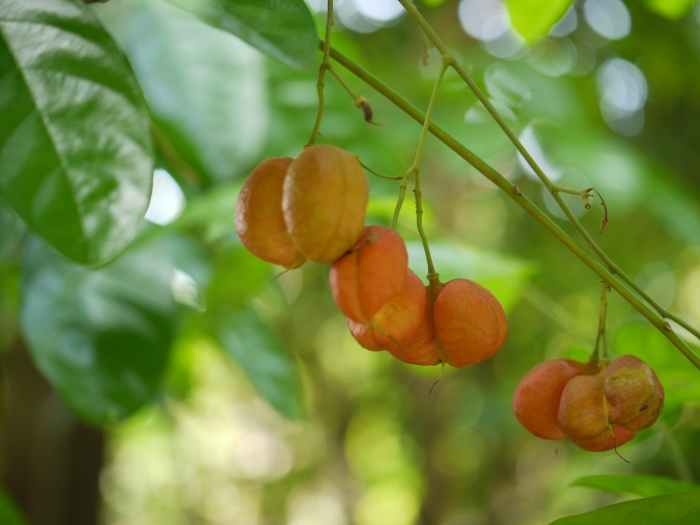Tulip-Wood Tree
(Harpullia arborea)
Tulip-Wood Tree (Harpullia arborea)
/
/

Dinesh Valke
CC BY-SA 2.0
Image By:
Dinesh Valke
Recorded By:
Copyright:
CC BY-SA 2.0
Copyright Notice:
Photo by: Dinesh Valke | License Type: CC BY-SA 2.0 | License URL: https://creativecommons.org/licenses/by/2.0/ | Uploader: Dinesh Valke | Publisher: Flickr |



























Estimated Native Range
Summary
Harpullia arborea, commonly known as Tulip-Wood Tree, is an evergreen tree native to the rainforests of Southeast Asia and the Pacific Islands, where it thrives under the canopy of taller trees. It typically grows to a height of 6-25 feet (1.8-7.6 meters) and a width of 4-20 feet (1.2-6.1 meters), making it a suitable choice for small gardens and urban landscapes. The Tulip-Wood Tree has a compact, upright form with glossy, pinnate leaves that provide a dense canopy. It produces inconspicuous greenish-yellow flowers in the spring, which are followed by decorative orange to red fruits that attract birds and other wildlife.
The Tulip-Wood Tree is valued for its attractive, dense foliage and its relatively small size, which makes it an excellent choice for urban planting, as a specimen tree, or for creating privacy screens. It is adaptable to a range of soil types, provided they are well-drained, and it prefers full sun to partial shade. While it is drought-tolerant once established, it benefits from regular watering during prolonged dry periods. This species is not commonly affected by serious pests or diseases, but it should be monitored for common issues such as scale insects and root rot in poorly drained soils.CC BY-SA 4.0
The Tulip-Wood Tree is valued for its attractive, dense foliage and its relatively small size, which makes it an excellent choice for urban planting, as a specimen tree, or for creating privacy screens. It is adaptable to a range of soil types, provided they are well-drained, and it prefers full sun to partial shade. While it is drought-tolerant once established, it benefits from regular watering during prolonged dry periods. This species is not commonly affected by serious pests or diseases, but it should be monitored for common issues such as scale insects and root rot in poorly drained soils.CC BY-SA 4.0
Plant Description
- Plant Type: Tree
- Height: 6-25 feet
- Width: 4-20 feet
- Growth Rate: Moderate
- Flower Color: Green
- Flowering Season: Spring
- Leaf Retention: Evergreen
Growth Requirements
- Sun: Full Sun
- Water: Medium
- Drainage: Medium
Common Uses
Low Maintenance
Natural Habitat
Rainforests of Southeast Asia and the Pacific Islands
Other Names
Common Names:
Scientific Names: , Harpullia arborea, Harpullia blancoi, Harpullia sphaeroloba, Ptelea arborea, Harpullia divaricata, Harpullia imbricata, Harpullia pedicellaris, Streptostigma viridiflora, Blancoa arborea
GBIF Accepted Name: Harpullia arborea (Blanco) Radlk.